Tag Archives: 20th century American journalism history
Every Writer Has At Least One Book Or Article That *Forced* Him/Her/They Into The Pain And Madness. I Recently Found A Key One That Made Me Myself.
It was originally published in the premiere issue of this magazine.
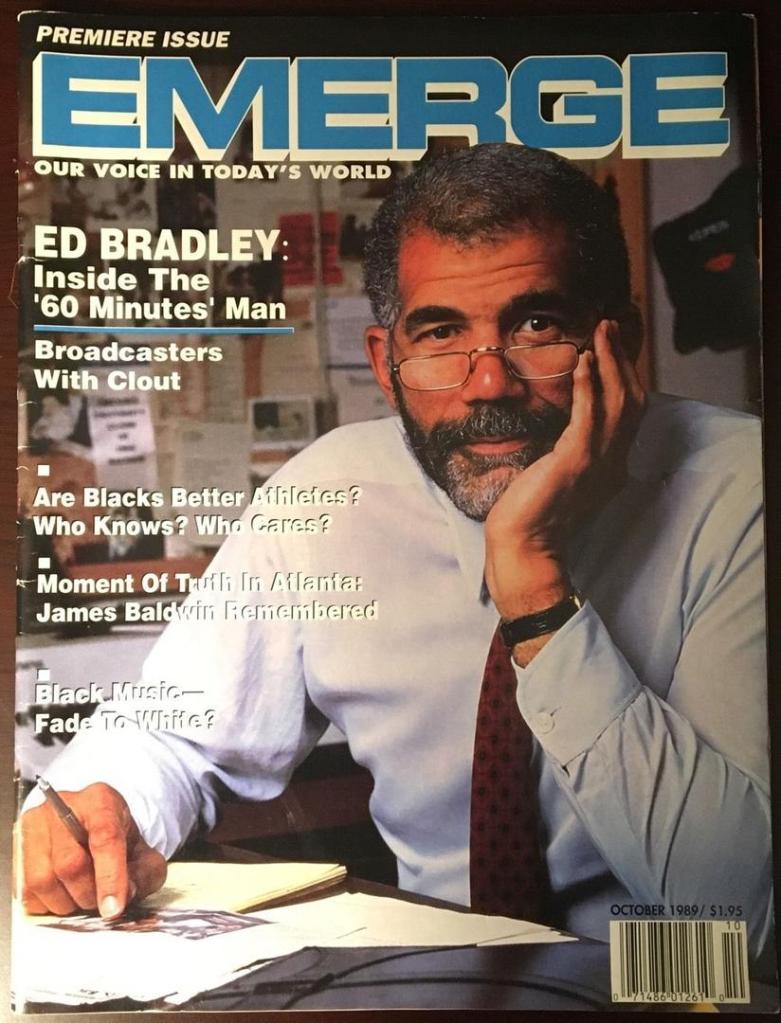
See the date, right above the bar code?!? Wow! I was 21 then, just hired at a daily newspaper, a ghetto Jimmy Olsen. Post-reading, I was doomed thereafter to roam the post-modern American wilderness looking for this kind of adventure and glossy chronicling opportunity, wishing to become either scribe, ready at any moment to greedily take either role, either side of the Ziegiest mirror. As I got older (note that I’m not writing “more mature”), that role/goal became my criteria to be involved with pretty much anything. Is this where my lifelong obsession with the lives of Black writers started? Hmmm…..
I’ve been laughing all week at how this article–a remembered and reconstructed momentary snapshot of place, person and circumstance, filled with 20th-century American post-rebel historic residue–has defined pretty much my entire life, while for its author, it was just an interesting part of a journalism career that loooong ago ended (he’s now a family therapist and adjunct professor at Antioch University, where he retired from as a pretty popular, multifaceted guy). He traveled light years from the experience, and I didn’t! Maybe I should call him so he can talk me down from the ledge? 🙂
Too long times ago. Two long times ago.
Be careful reading this. The truth moment, reprinted in the latest issue of The James Baldwin Review, is below.
Ida Bell Wells-Barnett Symposium @ Columbia University
Juan Gonzalez’s Final NYC Lectures (Before Moving To Chicago)
https://www.democracynow.org/2022/12/23/latinos_race_and_empire_a_talk
https://www.democracynow.org/2022/12/6/juan_gonzalez_reflections_on_40_years
*****
*****
More on Juan Gonzalez can be found here.
#JaredBall And I Discuss The Life And Legacy Of Lerone Bennett Jr. w/ Bennett Biographer E. James West
Hands-down, one of my favorite BPM discussions.
Book Mini-Review: The Glossy Raised Fist

Our Kind of Historian: The Work and Activism of Lerone Bennett, Jr.
Amherst and Boston: University of Massachusetts Press, 328 pp., $27.95.
West uses his mastery of the histories of Black Chicago and Ebony/Jet well here, significantly building on and adding to his previous work on the topic. An author explains an author in a wonderful intellectual history that sticks to very exciting facts: Lerone Bennett rises in a rising time, gaining knowledge and experience and pointing them toward what he would call in print the Black Revolution. He transforms himself from journalist to historian, from moderate, Kappa Morehouse Man to Pan-Africanist revolutionary. Absolutely necessary for those who want to understand 20th-century Black press history and, perhaps more importantly, how one “Black-famous” author’s Black history texts–all the outgrowth of one national Black magazine, a 20th-century legend once on every Black American coffee table–were significant weapons in the Black struggle before African-Americans had full access to local and national broadcasting and now international streaming.
New Book On Lerone Bennett Jr. Out Now!

I put my request in tonight, and I can’t wait!!!!
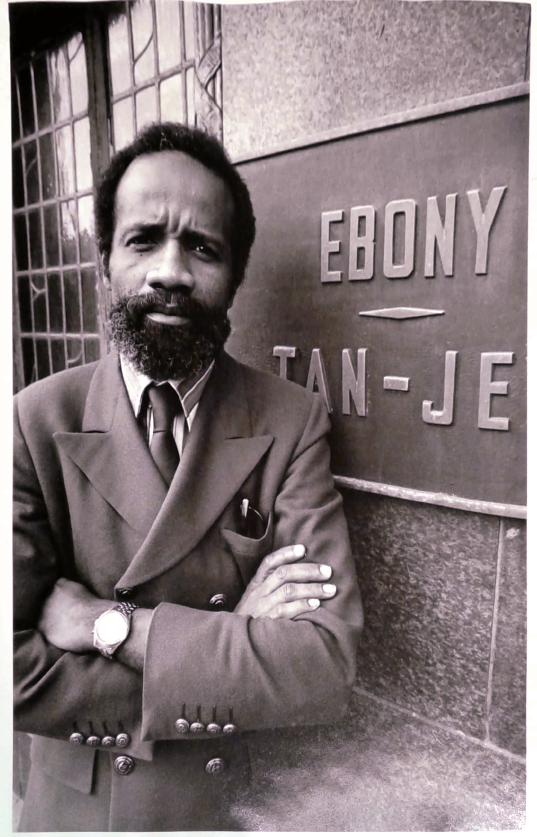
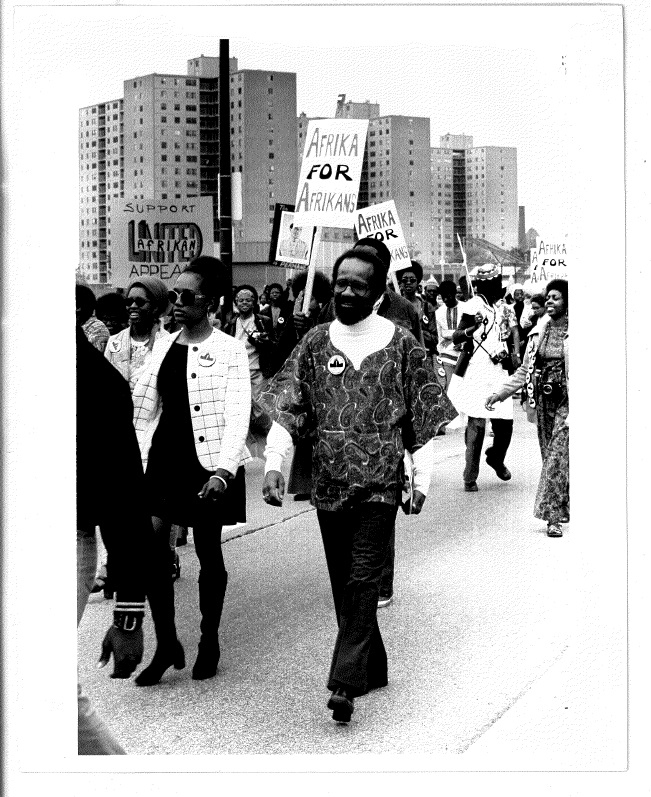


“You Know Because You Read The AFRO!” To Gayle King And Others Like You: It’s Really Okay If You Just Lie Next Time :)
Writing this while reading Richard Prince’s Journal-isms column that has people reacting to the idea that CBS’ Gayle King, one of the nation’s top Black journalists, did not know about the lives and work of Ethel Payne and Alice Dunnigan.
Admittedly, I’m not an average person when it comes to the Black press, so I can’t relate. As a ’80s teenager, I read Ethel Payne in real-time in the newspaper I started my career at, The New Jersey Afro-American! (“You know because you read THE AFRO” was the newspaper chain’s motto 🙂 ) My Afro’s Op-Ed page was “national,” not local, and so that meant it was added on to local editions like ours by the Baltimore headquarters. Payne had an Op-Ed column there, “Behind The Scenes.” And because the Black press is so self-referential, whenever she was honored, they’d tell her history. At 22, I had also read the 2nd edition of Roland Wolseley’s The Black Press, USA, a flawed-but-important book that shaped my decision three decades ago to become a Black media historian. Of course it mentions her, as does later a much better general-history book written by historian Clint C. Wilson II.
Yeah, I wish prominent Black people in public would stop being so honest about their ignorance. 🙂 Not knowing something and being rich and famous means you don’t have to know it, right? This means that Gayle King has never regularly read historic/legacy (20th century) Black newspapers!
It’s one thing when David McCullough admitted in 1989, as he did in his PBS’ American Experience intro on William Greaves’ Ida B. Wells film, that he didn’t know who she was, but another when one of us does it!
Don’t think our young Black journalism students are not peeping that because I’ve taught them at HBCUs and I know. (And this is part of a larger, systemic dumping of all media history classes because of J-schools’ well-funded digital focus. When I last checked, Maryland, my grad alma mater, stopped teaching journalism history as separate classes years ago.) Sadly, this public omission proves Gen Z’s irrelevancy point from its perspective.
P.S. Prince reminded me of this, so they’re really little room for excuses.
Black Press Legends Ethel Payne and Alice Dunnigan Get New Posthumous Honor
Asante Sana, Askia Muhammad
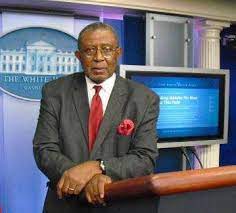
I was so happy to try to give him his journalistic flowers while he was here.
FEBRUARY 27th UPDATE: The Final Call’s tribute can be found here and here.
MARCH 5th UPDATE:
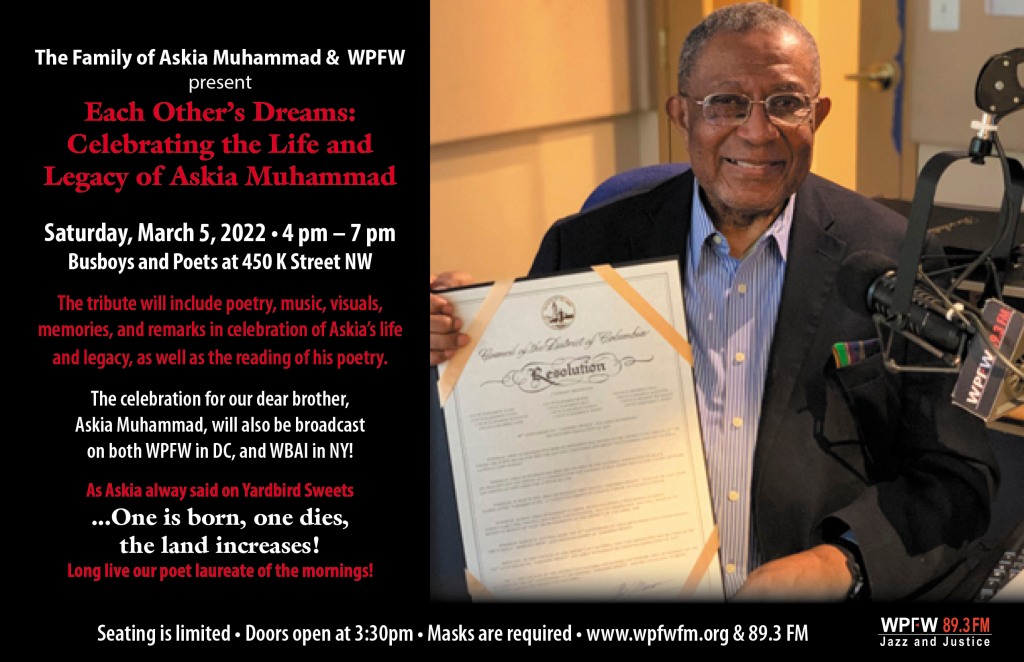
APRIL 2nd UPDATE: Coverage of the above event can be found here and here.